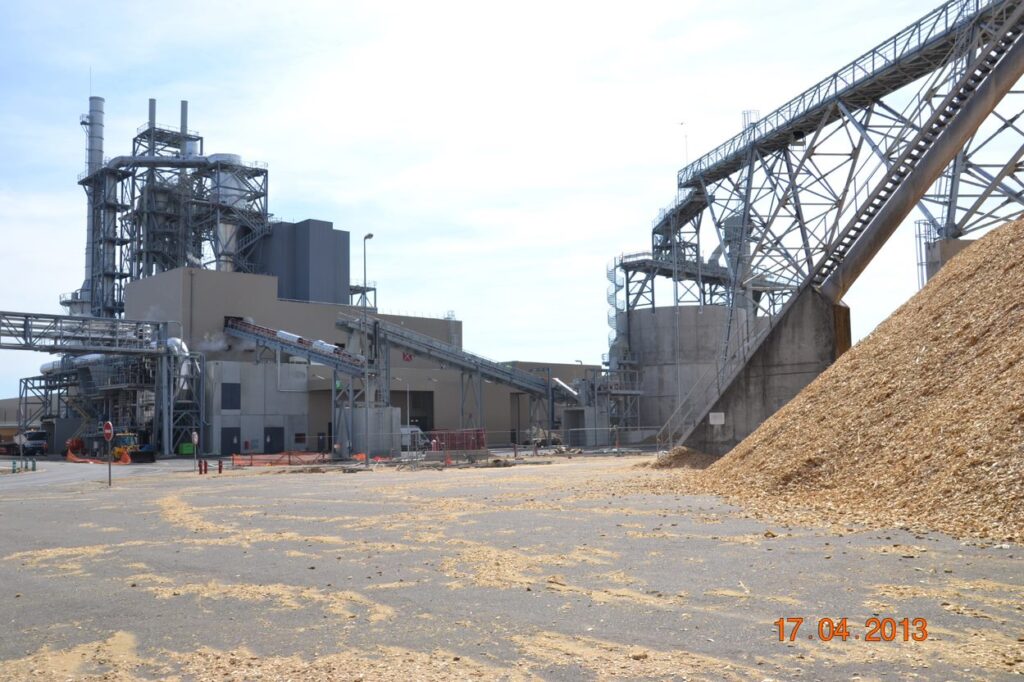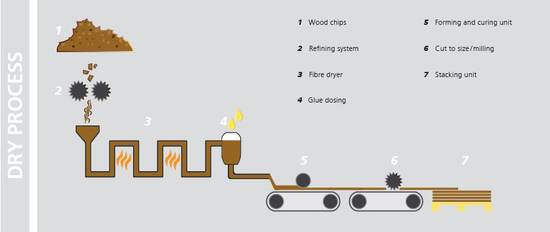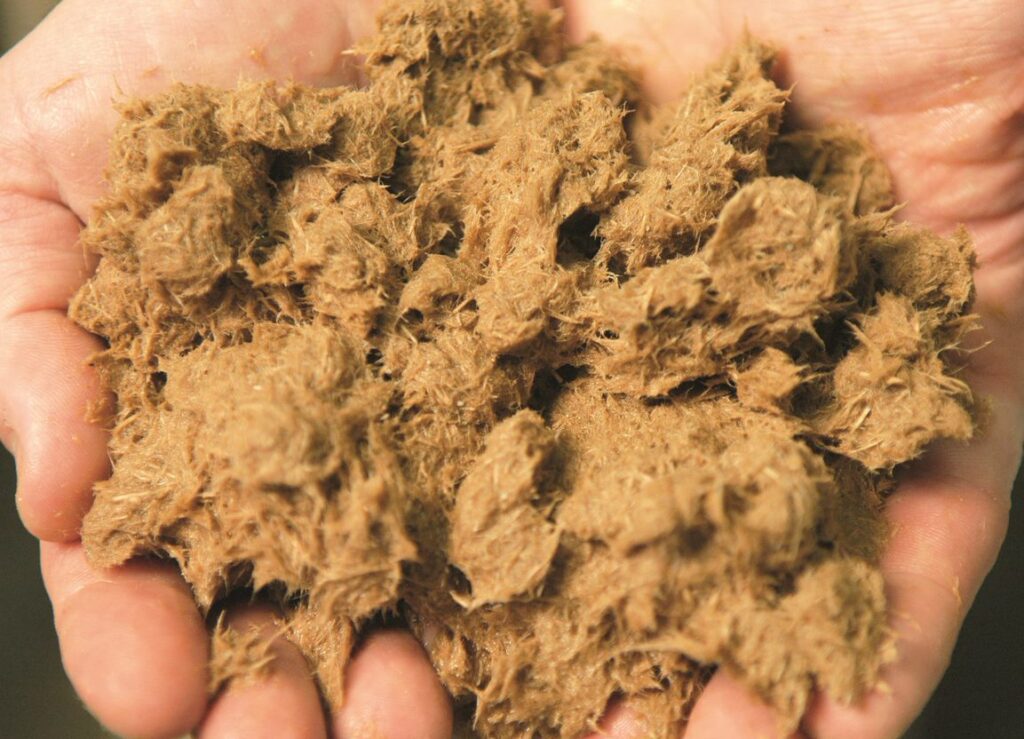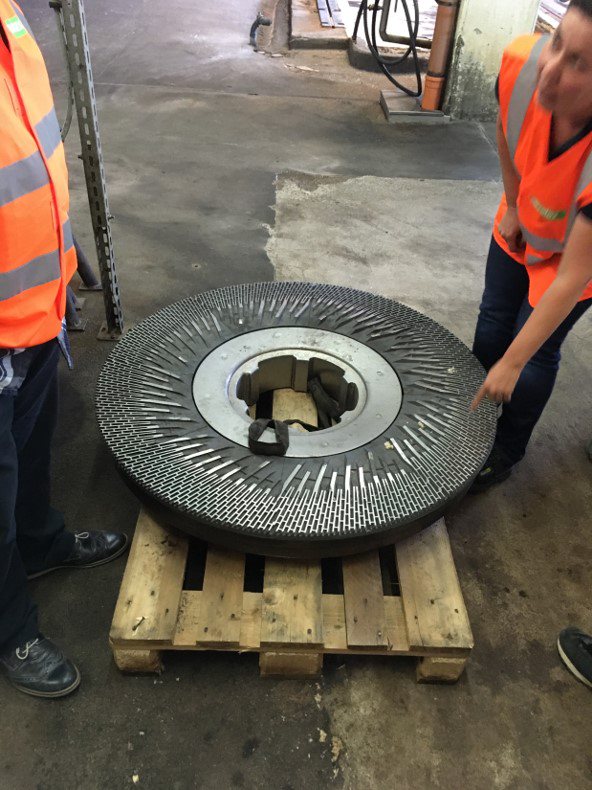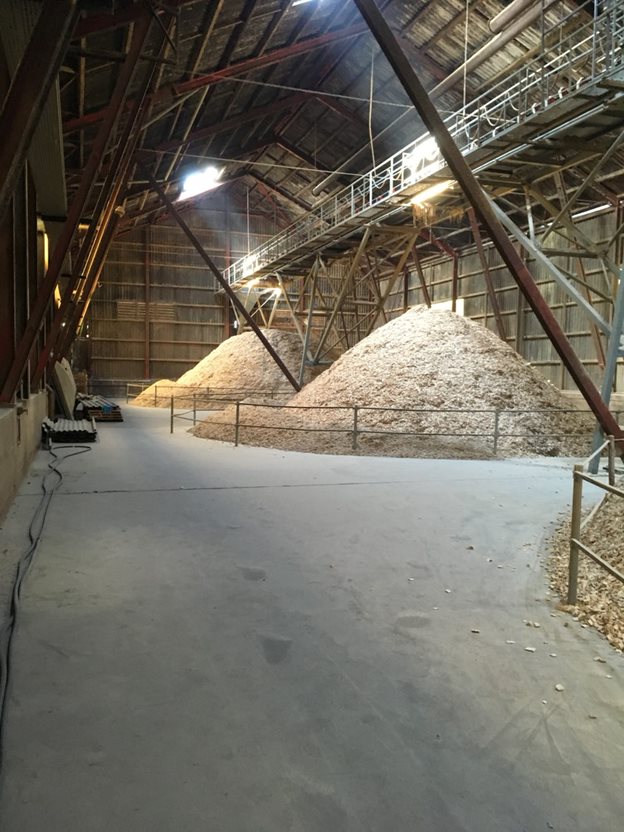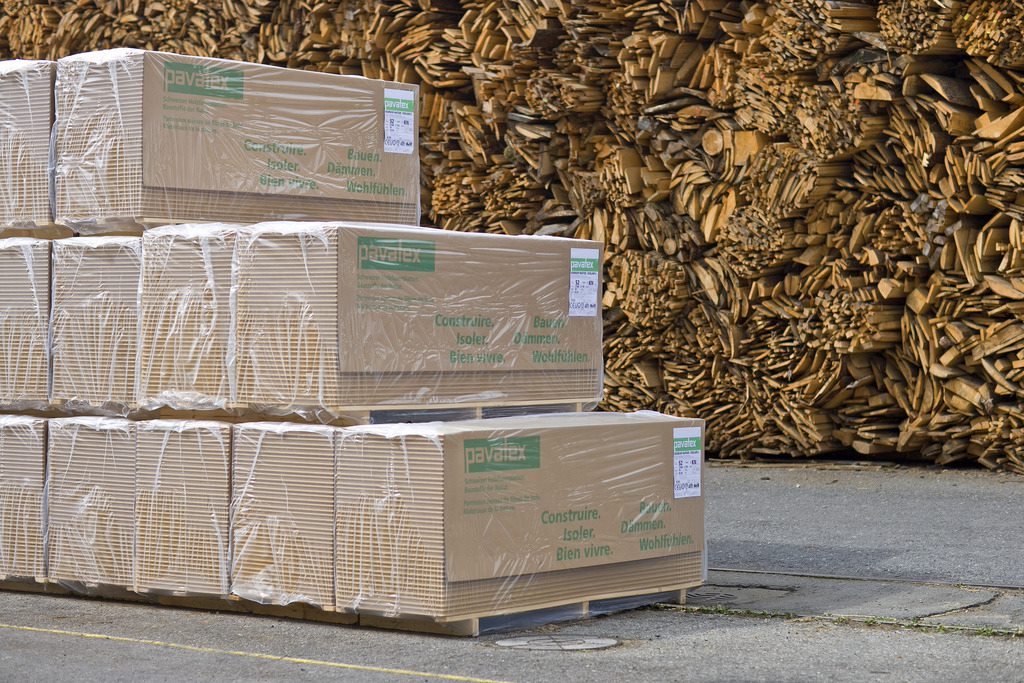Latest News Update
Manufacturing of woodfibre insulating boards
The dry process at the Golbey site: an innovative process which satisfies the requirements of Natureplus
Just as in the wet process, the wood chips are initially steamed at a pressure of up to 6 bars, in two cookers, one after the other. This is how they are prepared for defibration, which is conducted using shaped metal discs.
The fibres obtained are then dried in a drying machine at 180°C, before being passed through a cyclone at about 80°C. When the fibres are dry, a binder needs to be added in order to make the mixture homogenous. To that end, PAVATEX chose to develop, in conjunction with Siempelkamp, the manufacturer of the production line, the ‘2k system’, a binding agent system made of Polyurea. Polyurea is currently used in many areas of everyday life: as a foam in mattresses, in the field of medicine, notably for sutures, and in the manufacture of plastic parts for the car industry.
The glued fibre boards then passes various presses in order to achieve the required thickness. It is at this stage that the binders are turned into Polymers, using steam at a temperature of about 90°C.
Finally the boards are cut up and sent for finishing and will be profiled, if required.
In order to meet its environmental responsibilities, PAVATEX focuses specifically on quality and on responsible management. In order to do this, in addition to developing a system of binders that are more environmentally friendly, state-of-the-art production lines and top-quality technological equipment have been put in place. Thus, a wet-channel electrostatic filter has been installed in order to ensure that the air ejected is of optimum quality, while a system for recovering parts of energy used by the production line will make it possible to limit energy losses. Moreover, by collaborating with the paper mill, which neighbours the plant, in terms of recycling excess steam resulting from the paper-making process, will make it possible to provide thermal energy to fuel the production line.
SOPREMA uses waste heat from, and shares resources with, a nearby papermill factory to produce PAVATEX, and they rely on solar panels, even the energy that goes into the PAVATEX production process is carbon neutral.

